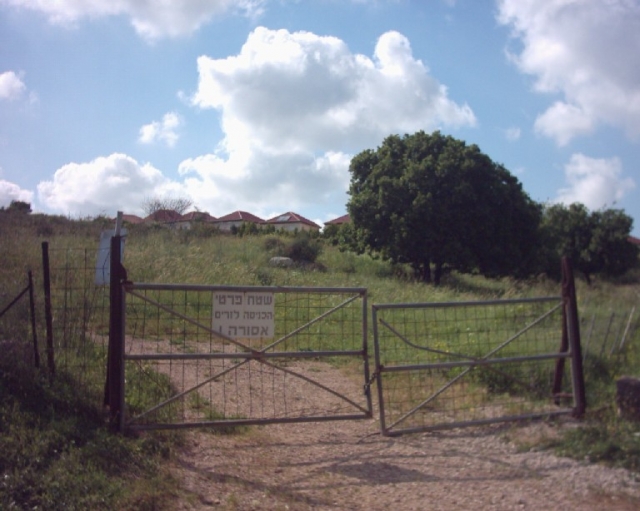Info
District: Haifa
Population 1948: 340
Occupation date: 16/04/1948
Occupying unit: Carmeli brigade
Jewish settlements on village/town land before 1948: None
Jewish settlements on village/town land after 1948: None
Background:
Khirbat al-Kasayir Before 1948
At 13 km distance from Haifa, the village was located on one of the hills which separated the Haifa Plain from Marj ibn 'Amir. It overlooked Mount Carmel to the west, and was linked by a secondary road to a highway leading northwest towards Haifa. Its Muslim residents traced their origins to North Africa.
Occupation, Depopulation, and Israeli Settlements
According to the History of the Haganah, the Arab Liberation Army (ALA) ordered one of its battalions to take up positions in the villages of Khirbat al-Kasayir and the adjacent Hawsha on 12 April 1948, during the height of the battle over Mishmar ha-'Emeq, in the Marj ibn 'Amir area further south. The ALA's plan was to snipe at nearby Jewish settlements (perhaps Ramat Yochanan) so that reinforcements would be sent there, relieving thus the pressure on ALA units around Mishmar ha-'Emeq. A unit of the Haganah's Carmeli Brigade attacked the ALA positions in the two villages on 14 April, but it was sent back.
The village was occupied with ease during the second attack on 16 April, due to the fact that there were only a few guards left. During the same day, however, the ALA force - which the Haganah said consisted of Palestinian and Syrian soldiers from the Druze community - tried to recapture the village nine separate times. According to the testimony of Jewish soldiers, the battles were marked by the ferocity and bravery of the ALA Druze fighters. The New York Times reported that 'many Arabs' were killed in the fighting, including 'Druze tribesmen'. By the ninth attack, the Carmeli units were ordered to withdraw from Hawsha and retrench in Khirbat al-Kasayir. However, after the arrival of a heavy machine-gun on the Haganah side, the Arab units 'collapsed' and, according to the History of the Haganah, 'did not even attempt to return to Khirbet Kasayir'.
It is not clear when did the Zionists return to the village, although its inhabitants had probably left by that time, due to the fierce battles. The attack on the two villages may have facilitated the encirclement and occupation of Haifa, which took place the following week.
The lands previously owned by the inhabitants of the village are now part of the Arab town of Shafa 'Amr.
The Village Today
The remains of bulldozed houses and collapsed cement walls, some covered with dirt, are scattered about the site. At the western corner of the site are a well and the remains of a house with the girders still visible. Another well is located at the eastern corner of the site. Cactus, as well as palm, mulberry, olive, and fig trees grow throughout the area. The entire site is fenced in and used as a cow pasture.
-----------------
Source: al-Khalidi, Walid (ed.). All that remains: the Palestinian villages occupied and depopulated by Israel in 1948. Washington DC: 1992.




